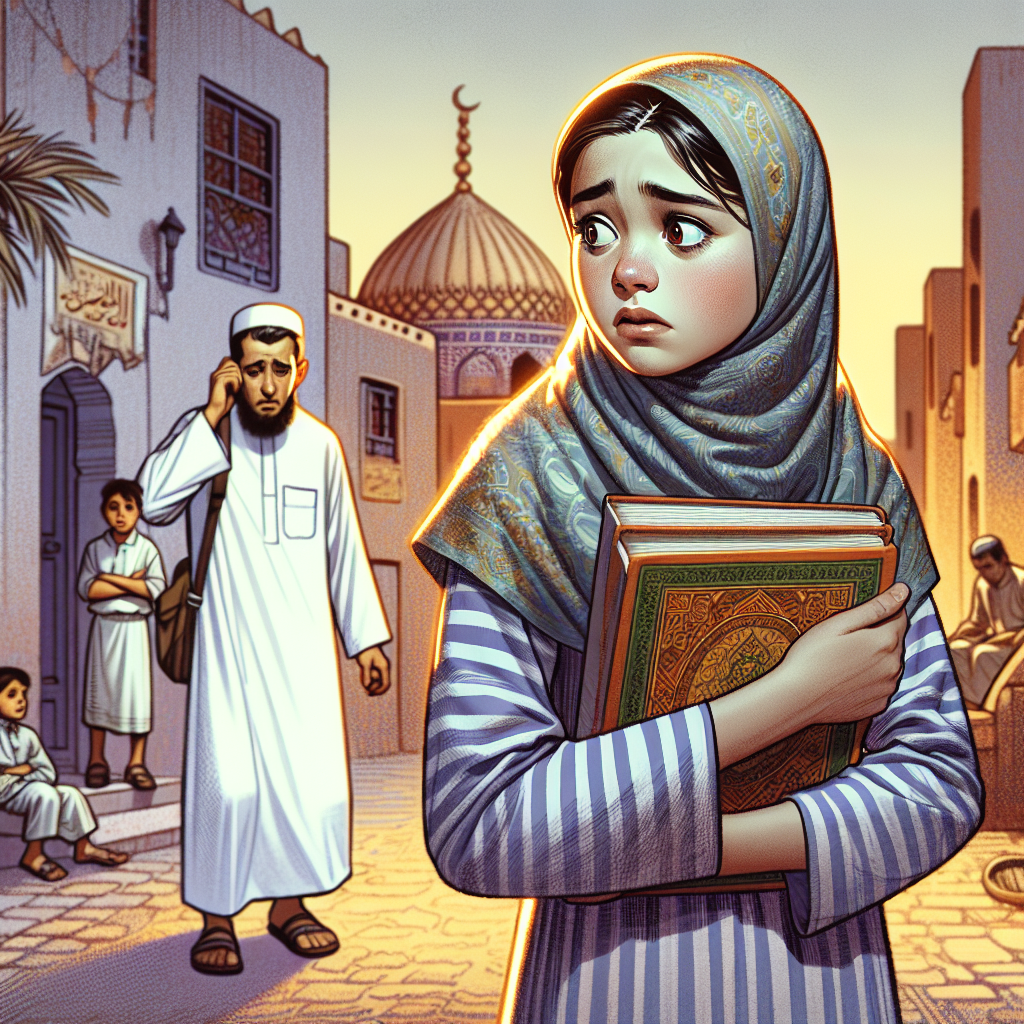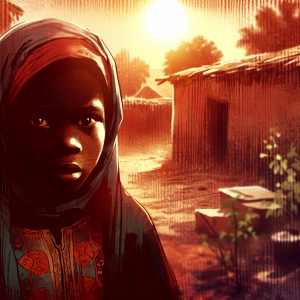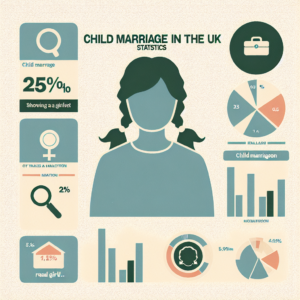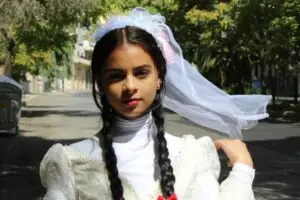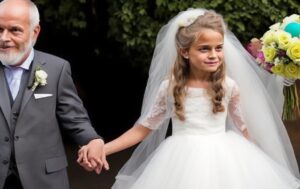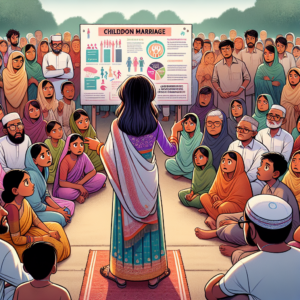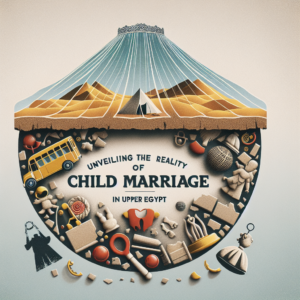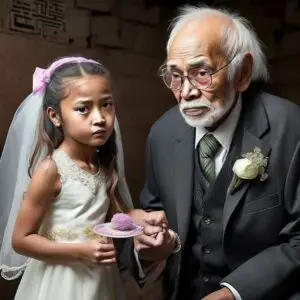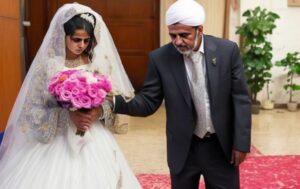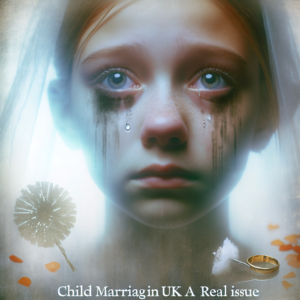#ChildMarriage #EndChildMarriage
Unraveling the Intricate Issue of Child Marriage in Israel: A Look at Its Legal, Cultural, and Social Aspects
Positioned in the Middle East, Israel is a mosaic of diverse cultures, religions, and traditions. Within this rich tapestry, child marriage emerges as a particularly intricate issue, weaving together aspects of law, culture, and society. This article aims to explore the complex reality of child marriage in Israel, highlighting its consequences, the challenges it poses, and potential avenues for progress.
The Legal Context Surrounding Child Marriage
In Israel, the legal framework around child marriage is a hybrid of religious and secular laws. Officially, the Civil Marriage Age Law of 1950 sets the marriage age at 18. Nonetheless, exceptions can be made for individuals as young as 16, given parental consent and judicial approval, creating a grey area that sometimes facilitates child marriages.
The enforcement of laws against child marriage is complicated by Israel’s diverse society, which is segmented into Jewish, Muslim, Druze, and Christian sectors, each with its own set of religious courts and marriage statutes. This multifaceted legal environment complicates efforts to adopt a cohesive strategy against child marriage.
The Cultural and Social Facets
To fully grasp the persistence of child marriage in Israel, one must consider the cultural and social backdrop that sustains it. In certain circles, age-old traditions and societal norms contribute to the continuation of this practice, driven by motives ranging from preserving family honor to cementing social bonds or fulfilling religious and cultural mandates.
- Preservation of Family Honor: In some conservative circles, early marriage is seen as a means to protect family honor by ensuring premarital chastity.
- Strengthening Social Bonds: Occasionally, marriages are arranged to solidify relationships between families or communities, with scant attention to the age of those marrying.
- Adherence to Religious and Cultural Norms: Certain interpretations of religious teachings or cultural traditions promote early marriage, embedding it deeply within these communities.
It’s important to note, however, that cultural practices are dynamic and open to reinterpretation, presenting opportunities for transformation.
Advocating for Transformation
Many advocates and intellectuals stress the importance of defending the vulnerable, particularly children, from detrimental customs. Nobel laureate Malala Yousafzai’s words, “We cannot all succeed when half of us are held back,” echo powerfully in the context of child marriage, which disproportionately impacts young girls, often curtailing their education, exposing them to health risks, and limiting their future autonomy and economic freedom.
Education stands out as a crucial tool in combating child marriage, empowering individuals and encouraging a societal shift towards recognizing and valuing the rights and potential of young girls. As educational attainment increases, the prevalence of child marriage decreases, underscoring the significance of universal education access.
The Impact of International and Local Efforts
International bodies, such as UNICEF and Human Rights Watch, play a vital role in aiding Israel and other nations in eliminating child marriage. Through resource provision, best practice sharing, and policy advocacy, these organizations can drive significant change.
On the ground, local activists and NGOs in Israel are pivotal in raising awareness, educating communities, and supporting those affected. These grassroots actions are vital for achieving lasting change that respects cultural nuances.
Moving Towards a Future Without Child Marriage
The journey to abolish child marriage in Israel is filled with obstacles, necessitating a collaborative approach that melds legal reform, cultural understanding, education, and advocacy. Moving forward, the aim is to cultivate an environment where every girl can freely choose her life’s direction.
In this quest, the words of human rights advocate Nada Al-Ahdal, “Protecting human rights is not an option, but a responsibility of us all,” serve as a powerful reminder of our collective obligation to protect the rights and futures of young individuals faced with child marriage.
Conclusion
The issue of child marriage in Israel is deeply rooted in legal, cultural, and social contexts. Despite the formidable challenges, the prospects for change are substantial. By understanding the intricacies of this issue, advocating for legal changes, and championing the empowerment and education of young girls, we can advance towards a future where child marriage is consigned to history.
As we work towards this future, let us bear in mind that our actions today will shape the world of tomorrow. It is our duty to protect the vulnerable and ensure that every child can lead a life of dignity, unburdened by the constraints of early marriage. Together, we have the power to create a society that respects and realizes the rights and potential of all its members, setting the stage for a more just and equitable future.
#NadaFoundation
#ChildMarriage
#Nada_Foundation
#NadaAlahdal
#Exploring #Complex #Landscape #Child #Marriage #Israel #Legal #Cultural #Social #Dimensions
exploring-the-complex-landscape-of-child-marriage-in-israel-legal-cultural-and-social-dimensions



